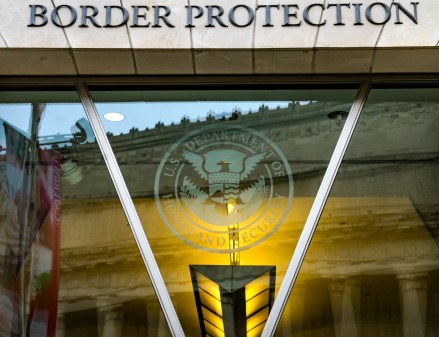DHS ditched software that archived officials’ electronic messages

The Department of Homeland Security in April disabled third-party software that automatically archived SMS, Signal and WhatsApp messages sent by senior agency officials, according to court filings made public this week, raising questions about DHS compliance with federal recordkeeping laws.
The revelation of DHS’s move to ditch the TeleMessage archival tool was revealed in sworn testimony by Michael Weissman, the executive director of the Chief Data Officer Directorate within the agency’s Office of the Chief Information Officer, in the case American Oversight v. DHS in the U.S. District Court for the District of Columbia.
According to Weissman, use of TeleMessage — which DHS deployed from Sept. 29, 2023, to April 9, 2025 — was halted because of “cybersecurity failures.” The software had lessened the burden on agency officials to archive their communications, in addition to easing the work of responding to discovery and Freedom of Information Act requests.
But TeleMessage was not replaced with a similar archival tool, per Weissman. Since April, DHS employees who had been covered by that system were “again obligated to manually archive their messages in accordance with existing DHS policy,” he wrote.
Those officials were presented with two options for preserving their electronic messages: screenshot and archive a copy of their communications to shared drive work folders, or have DHS’s OCIO assign a technician to manually access their devices and use forensic tools to create a searchable copy of them. The latter method, Weissman noted, is only available to high-ranking DHS officials, such as the secretary and deputy secretary.
Manually archiving electronic communications is not an unprecedented measure for DHS officials, Weissman added. The agency has “never had the ability to archive iMessages due to the technical implementation of Apple’s encryption technology,” he wrote, meaning officials have “always been responsible” for manually archiving those records. iMessages were disabled on DHS-issued iPhones on March 1, 2023, but then reinstated Feb. 20, 2025, per the court filings.
Chioma Chukwu, executive director of American Oversight, said in a statement that the testimony is essentially an admission that the agency “provided inaccurate information about whether Secretary [Kristi] Noem’s and other top agency officials’ text messages were properly preserved.”
“We’re talking about messages exchanged amid major national controversies — from the deployment of military forces on American streets to inhumane immigration crackdowns and deportations carried out in defiance of court orders,” Chukwu said. “The public deserves to know whether these records still exist, and whether officials destroyed evidence of how those decisions were made. After misleading us for months, DHS wants us to trust that the law is being followed. But the agency has not turned over the records we requested nor has it provided details about whether senior officials’ text messages have been preserved in accordance with the law. It’s time for transparency — not more empty assurances.”
American Oversight’s interpretation appears to refer in part to sworn testimony from Catrina M. Pavlik-Keenan, deputy chief FOIA officer for DHS’s Privacy Office (PRIV), who said the agency’s OCIO initially told her office in late August that because of the move away from TeleMessage, it was unable to search for records requested by the nonprofit.
Based on OCIO’s response, PRIV wrote back to American Oversight and “mistakenly” informed the group that “it was unable to locate or identify any responsive records as DHS no longer had the capability to conduct a search of electronic messages,” Pavlik-Keenan wrote.
“After further review, PRIV acknowledged that OCIO could still conduct searches for electronic messages consistent with existing DHS records management policy, which requires custodians to manually save screen shots of electronic messages that contain federal records to DHS systems,” she added.
William Fischer, the acting chief records officer for the National Archives and Records Administration, meanwhile, said in sworn testimony that NARA became aware of media reports in late August that DHS officials were “unlawfully disposing of electronic federal records.” NARA then sent DHS a letter requesting an investigation into the allegations and a report sent back within 30 days.
“To the best of my knowledge, as of the date of this Declaration, NARA has not received a response to the letter,” Fischer wrote.
According to Weissman, DHS is currently exploring new processes for archiving electronic messages from senior agency and Capstone officials. So far, the agency has “uncovered no evidence” that any federal records have been destroyed or that specific officials have skirted recordkeeping policies.
“DHS policies have never authorized employees to destroy records,” Weissman wrote. “Although DHS is working to identify new, secure, technical solutions to allow automatic archiving of electronic messages, DHS has always maintained Department-wide policies requiring all federal records to be preserved, including those sent by electronic message.”






